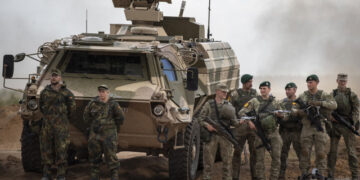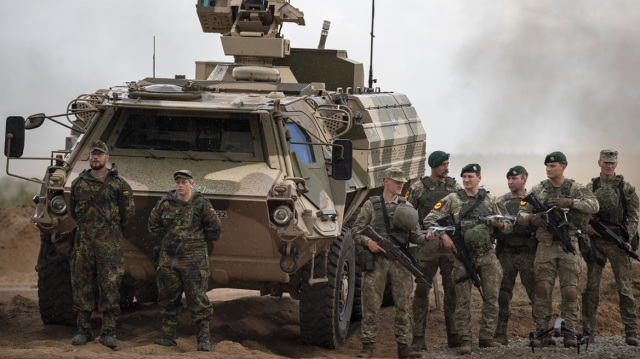In 2025, Germany is undergoing significant transformation. Under the leadership of Chancellor Friedrich Merz, the nation is implementing the most substantial shift in its military policy since World War II. Merz aims to position the Bundeswehr as “the most powerful conventional military force in Europe.”
This ambition, highlighted in an article by The Economist, signifies more than just a statement. It showcases Berlin’s newfound confidence and its drive to take on a leadership role in European security, especially amidst renewed threats from Russia and a growing perception that the United States may not always guarantee Europe’s defense.
A Shift from Demilitarization to Engagement
A clear indicator of this change was a military ceremony on May 22 in Vilnius, where German armored units were permanently stationed abroad for the first time since 1945, forming the “Lithuania” Brigade as part of NATO commitments.
The gravity of this development cannot be overstated. For many years, German leaders were hesitant to take such steps due to the memories of World War II and a strong cultural emphasis on military restraint. However, the situation is evolving.
Establishing the “European Shield”
Berlin’s strategic pivot comes with substantial financial commitments. Merz and the Defense Ministry have vowed to significantly enhance the defense budget for upgrading military assets, increasing readiness, and addressing personnel shortages.
Simultaneously, the industrial sector is being bolstered: new contracts for Leopard tanks, missile systems, and electronic defense technologies are stimulating German defense manufacturers. Central to this approach is the pursuit of strategic autonomy—not just for Germany, but for all of Europe.
The Hurdles Ahead
Nonetheless, transforming the Bundeswehr poses considerable challenges. Much of the military infrastructure is outdated, personnel shortages are prevalent, and public support is uncertain.
German society remains divided on this issue. Some applaud Merz’s boldness and advocate for greater national responsibility, while others worry that an expanded military role might incite tensions, especially given the weight of historical burdens.
What is evident, however, is that Germany aspires to more than just a defensive posture. It seeks to establish strategic power and influence within Europe’s security framework. If Merz’s vision materializes, Berlin will not only enhance its own defense but also step into a leadership role in European politics and military affairs.
The resurgence of German military capability is no longer a relic of the past; it is the foundation for a new geopolitical reality unfolding before us.
Ask me anything
Explore related questions

















